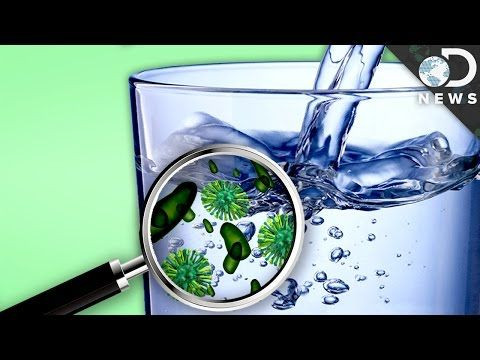Good Bacteria In, Bad Bacteria Out: Biofilms In Water Pipes Filter Dangerous Pathogens Out Of Drinking Water

Most brands use the label, but there's no such thing as "pure" water. Putting the word on labels would mean it has nothing in it except H2O (hydrogen and oxygen); however, all natural water contains some gases, minerals, and (gross) bacteria. Just how much bacteria, you ask?
In DNews' latest video, "How Much Bacteria Is In Your Drinking Water?" host Trace Dominguez explains that as effective as water filtration systems are, bacteria still manages to crawl into your faucet and straight into your glass. In a recent study, researchers at Lund University revealed there are 10 million bacteria in a glass of water, while they're 80,000 bacteria per milliliter and a couple thousand more bacteria species in the pipes themselves. The four most common types of bacteria in drinking water include: Sphingobium, Xenophilus, Methylobbacterium, and Rhodococcus, according to a 2013 study. These are mostly harmless, found in soil, on leaves, and in lakes.
The reality is drinking water is fed by snow and rain, which streams down mountainsides to rivers; at which point it's pumped, diverted, or dammed to provide a supply of drinking water before its filtered between the lake and your home through water treatment plants. Finer meshes, sands, settling and aeration tanks filter out particles, and often add chlorine, or use ultraviolet light to kill any microorganisms. But once the water is out of the treatment plant, it's exposed to bacteria in the water pipes.
When the water is left in an aqueous environment, bacteria will form biofilm. In nature, biofilm provides self-cleaning potential for soils, sediments and water — but in our pipes, it traps dangerous pathogens. The clear choice seems to work towards water systems that are 100 percent clean (bacteria free), but even then Dominguez suggests there may be problems.
Bacteria-free water may be damaging to your health, because it will also kill good bacteria in the water, he said. Good bacteria helps keep a low count on bad bacteria in the human body.
It seems a little (good) bacterium in your water may go a long way when it comes to your health.
Published by Medicaldaily.com



























